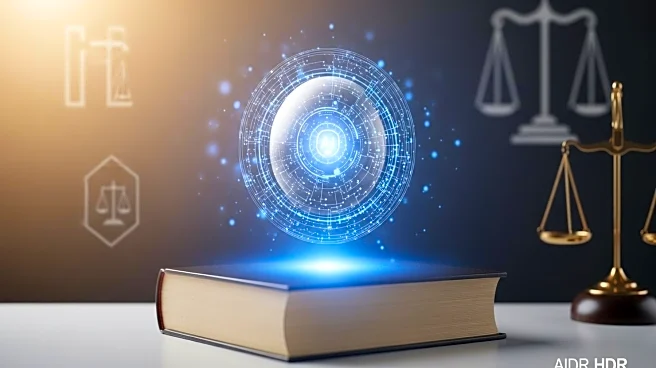What's Happening?
The legal industry is currently experiencing a surge in discussions around AI agents, with many products being marketed as advanced technological solutions. However, a webcast titled 'Agent Washed: Unpacking the Hype and Reality of Legal AI Agents' aims to address the phenomenon of 'agent-washing,' where simple chatbots or low-code interfaces are misrepresented as sophisticated AI systems. The session will explore the true nature of AI agents, focusing on their autonomy, reasoning capabilities, and tool orchestration. The event seeks to educate legal professionals on distinguishing genuine AI agents from mere marketing buzzwords, providing practical insights into what these systems can realistically achieve today.
Why It's Important?
The rise of AI agents in the legal sector represents a potential shift in how legal services are delivered, promising increased efficiency and innovation. However, the prevalence of 'agent-washing' poses a risk of misleading legal professionals and firms into investing in inadequate technology. Understanding the capabilities and limitations of AI agents is crucial for legal operations and technology leaders to make informed decisions. This knowledge can help avoid costly investments in underperforming tools and ensure that the adoption of AI in legal practices truly enhances productivity and service delivery.
What's Next?
As the legal industry continues to explore AI integration, stakeholders are likely to demand more transparency and accountability from tech providers. Legal professionals may push for clearer standards and definitions to differentiate between genuine AI solutions and overhyped products. This could lead to a more discerning market, where only those technologies that demonstrate real value and effectiveness gain traction. Additionally, ongoing education and discussions, such as the webcast, will be essential in guiding the industry through this technological evolution.
Beyond the Headlines
The ethical implications of AI in law are significant, as these technologies could impact client confidentiality, decision-making processes, and the overall practice of law. As AI agents become more integrated into legal workflows, there will be a need for robust ethical guidelines to ensure that these tools are used responsibly and do not compromise the integrity of legal services. Furthermore, the shift towards AI-driven legal work may necessitate new skill sets for legal professionals, emphasizing the importance of continuous learning and adaptation in the field.










